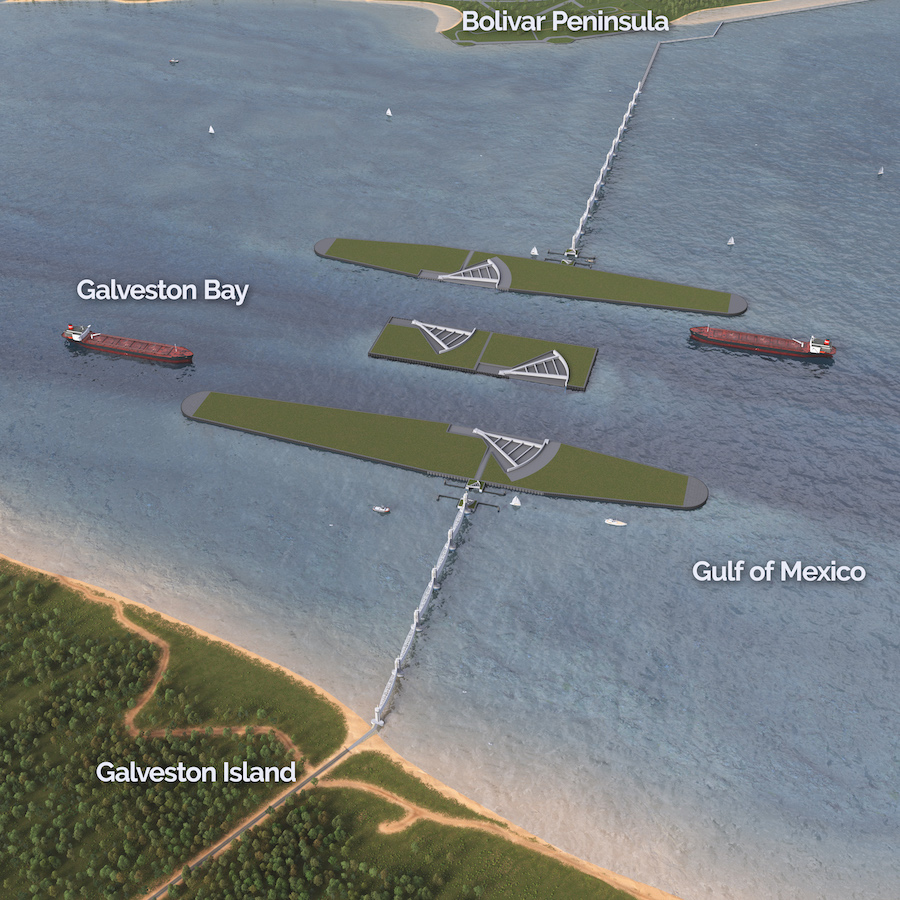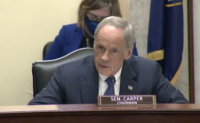Key Senate and House leaders have reached a bipartisan agreement on a new Water Resources Development Act (WRDA) that would authorize more than $37 billion in federal funds for 25 new and five modified Army Corps of Engineers flood and hurricane protection, harbor dredging and other civil works projects across the U.S.
The joint announcement of the deal came late on Dec. 6, from the chairs and top Republican members of the Senate Environment and Public Works and House Transportation and Infrastructure Committees.
Lawmakers said that the WRDA would become the vehicle for a massive Dept. of Defense authorization bill. The House approved the DOD-WRDA package on Dec. 8, on a 350-80 vote.
The Senate cleared the measure on Dec. 15, on an 83-11 vote, sending it to President Joe Biden for his signature.
If the measure clears the Senate and is signed into law before Jan. 1, it would continue the recent pattern of enacting a water resources measure every two years.
The measure only authorizes federal funds. The federal funding for the 25 new Corps projects is about $30.4 billion, according to ENR's calculations. When non-federal funding is added, the total estimated cost of the 25 new Corps projects is $51.6 billion.
Besides the new project authorizations, the bill contains $7.4 billion in federal funds for modifications to five earlier projects. Their total cost is $10.9 billion.
By far the largest single project on the bill's list is a huge storm protection and ecosystem restoration program in the Texas Gulf Coast. The new bill authorizes $21.4 billion in federal funds for the Texas project, whose total cost is estimated at $34.4 billion.
John Doyle, special counsel with law and lobbying firm Jones Walker, said in an interview, "A $3-billion project is a mammoth project in the Corps world. This one's an order of magnitude larger than that."
Doyle, a former top Army civil works official, adds, "It is a major, major precedent. I believe we're going to be seeing more of these [coastal megaprojects] as climate change and sea-level-rise issues continue to be recognized."
The largest new navigation project authorization in the bill is $2.4 billion for further dredging in the New York-New Jersey Harbor. That project’s total price tag is $6.3 billion.
Also in the measure, three hurricane and storm protection projects would receive federal authorizations exceeding $1 billion—in the Florida Keys ($1.8 billion), in Louisiana’s Upper Barataria Basin ($1.2 billion) and New York's Staten Island ($1.2 billion).
There is a significant caveat attached to the bill’s funding: The authorizations are subject to annual appropriations, which have lagged well below the multi-billion-dollar authorization numbers in past WRDAs.
Along with the funding, the new WRDA has policy-related provisions. One significant policy change would make permanent a 2020 change in the cost-sharing formula for Corps inland waterway construction projects to 35% from the general fund and 65% from the Inland Waterway Trust Fund. The old formula was a 50-50 split between the general fund and the trust fund.
The 65-35 ratio would allow the trust fund dollars to help finance more projects than under the 50-50 cost sharing.
The 2020 WRDA instituted the 65-35 change, but only for 10 years.
Senate committee Chair Tom Carper (D-Del.) said in a statement that the bill authorizes projects in every state and in U.S. territories and "better positions the Army Corps of Engineers to make our communities more resilient and ensure that more Americans can benefit from the Corps’ work."
House committee Chair Peter DeFazio (D-Ore.) said the measure would "help ease supply chain issues and make communities across the country more resilient in the face of extreme weather."
The House panel's top Republican, Sam Graves (Mo.), noted the importance of flood protection in his district. He said, "It's critical to make sure the Corps of Engineers doesn't lose focus of its navigation and flood control responsibilities and this bipartisan bill does just that."
As in the past, to be included in the new WRDA, projects needed a favorable report from the Army’s Chief of Engineers, Lt. Gen. Scott Spellmon. As the House and Senate versions advanced through the legislative process in recent months, Spellmon signed more "chief's reports" and the number of projects has risen.
Story updated on 12/08/22 with House passage of the bill.
Story updated on 12/15/2022 with Senate passage of the bill.






Post a comment to this article
Report Abusive Comment